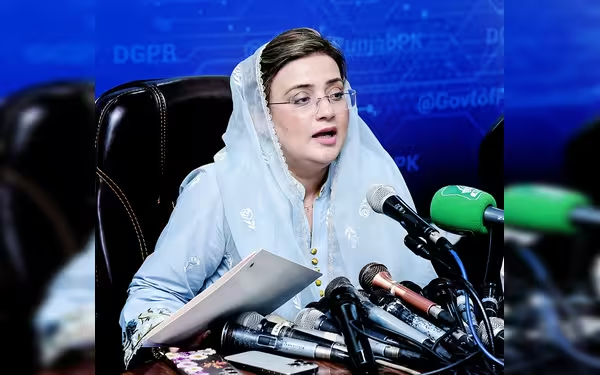Saturday, November 16, 2024 07:36 PM
Azma Bokhari Compares PTI to Taliban in Political Discourse
- Azma Bokhari labels PTI as a fascist party.
- Call for unity against enemies of the state.
- Concerns over PTI's impact on democracy.
 Image Credits: pakobserver.net
Image Credits: pakobserver.netAzma Bokhari asserts PTI and Taliban are two sides of the same coin, urging unity against threats to democracy in Pakistan.
In recent political discourse in Pakistan, the Pakistan Tehreek-e-Insaf (PTI) party has come under intense scrutiny. Azma Bokhari, a prominent political figure, has made a striking comparison, stating that the PTI and the Taliban are "two sides of the same coin." This assertion raises significant questions about the nature of political affiliations and the impact of extremist ideologies on the country's democratic framework.
Bokhari described the PTI as a "fascist party" that is willing to go to any lengths to achieve its objectives. This characterization is not merely a political jab; it reflects deep concerns about the party's methods and motivations. The term "fascist" evokes images of authoritarianism and suppression of dissent, suggesting that the PTI's approach to governance may undermine the very principles of democracy that Pakistan strives to uphold.
Furthermore, Bokhari emphasized the necessity for all political parties, along with the media and judiciary, to unite against what she termed the "enemies of the state." This call for unity is crucial in a time when political polarization threatens to destabilize the nation. By rallying together, these entities can create a formidable front against any forces that seek to disrupt peace and democracy.
The implications of Bokhari's statements are profound. If the PTI is indeed aligned with extremist ideologies, it poses a significant threat not only to political stability but also to the social fabric of Pakistan. Citizens must remain vigilant and critically assess the actions and rhetoric of political parties. It is essential for the electorate to engage in informed discussions and hold their leaders accountable.
The comparison made by Azma Bokhari serves as a wake-up call for Pakistan. It highlights the urgent need for a collective response to safeguard democracy and ensure that political parties operate within the bounds of law and ethics. As the nation navigates these turbulent waters, it is imperative for all stakeholders to prioritize the greater good over individual agendas. Only through unity and vigilance can Pakistan hope to foster a political environment that is both inclusive and progressive.













